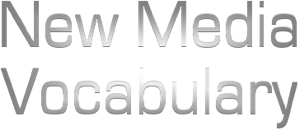
New Media Vocabulary: Facebook Page
Pages are a fairly recent addition to the Facebook features, but I think they were a natural — and important progression — in the service once it opened up to business use as well as the typical “friending” of individuals. Pages allow anyone to setup — what I describe as — a public facing account on Facebook. Before pages, if a business of any size wanted to connect with customers and interested people, they had to make everyone a “friend.” The trouble being, though, that in order to let these friends see your status updates and other content, you were also forced to see all of their status updates. This could quickly render most Facebook feeds useless as they were filled with other, non-related information from customers and other friends.
Pages allow you to contain the business-related discussions to an area outside of your own personal Facebook Timeline, allowing you follow those people and other Pages that are most important to you, without polluting your Timeline and making it unusable. Pages also allow people to add themselves (Like) your page without any further action on your part. They can also leave a page any time they desire. This helps to cut down on the amount of administration you have to do, especially if you were “friending” each person individually.
Pages also allow you to appoint multiple administrators for a page so that various members of a group can perform page tasks like moderating, banning spammers and posting new content from their own Facebook accounts instead of having to use one Facebook login shared among a group.
For more information on Facebook Pages:
- Create a Page on Facbeook
- What is a Facebook Page? at Facebook
- Facebook Pages Manager for iPhone, iPad
Previously on New Media Vocabulary:



Pingback: New Media Vocabulary: Pageview(s) | New Media Interchange